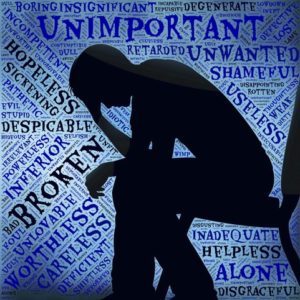In 2011, after having experienced several bouts of mild-to-moderate depression, I was sure I understood it. And I was confident I knew how to beat it. My theory was that it was essentially a malady of egocentricity – i.e., of thinking too much about yourself.
So I wrote an essay laying out my suggestions for anyone suffering from “the blues”:
- First, do NOT complain about your problems. Instead, write them down. Then review them, noting which are external (“My company is downsizing”) and which are internal (“I’m afraid I’ll be fired”).
- Try to accept the external factors you can’t control, and think about ways to resolve your internal issues.
- Smile 25 times in a mirror.
- Take a long walk, trying to think of nothing.
- Count your blessings. Write them down. Read them aloud.
- Do something that requires your full attention – like practicing a challenging piece of music or playing chess.
- Imagine your funeral. Imagine what you want people to be saying about you. Start doing the things you want to be remembered for.
- Do something kind or beneficial for someone else.
That was written before I had my first experience with serious depression. Before I realized the huge difference between feeling sad (even very, very sad) and being clinically depressed.
I still believe that egocentricity is a common problem. But I no longer believe that those eight suggestions can work – at all – for deep depression. They may be helpful when you are sad or even moderately depressed. But they won’t work if you are seriously depressed. When you are that low, you won’t have the mental energy to get out of bed, let alone take charge of your thoughts and feelings.
That doesn’t mean you can’t do anything to help yourself. Here are just a few of the things that work for me:
- Be aware of your breathing. Try to breath slowly and deeply, bringing oxygen into your body and brain.
- Keep telling yourself that the depression is temporary. That, eventually, it will pass.
- Notice that the psychic pain you are feeling is not consistent but rises and falls throughout the day. When you are low, know that your mood will rise, if just a little, in a few hours.
- If possible, take a cold shower. As cold and as long as you can stand it. This will give you a temporary lift – from 15 minutes to an hour.
- If you can do it, very demanding physical exercise should help.
- Don’t feel bad about how much you want to sleep. Deep depression exhausts the body, just as any physical disease does. You need lots of rest.
After my third serious episode of deep depression in 2011, I wrote an in-depth essay about my experience with depression and the system I developed to overcome it. If you think it might be helpful for you or someone you know, I’ve reproduced it below…
How I Learned to Deal With Chronic Depression
By Mark Morgan Ford
Most people know little to nothing about mental illness. Ask 10 lay people the difference between psychosis and neurosis and just one or two would be able to give you the right answer. But there are two types of mental illness that most people think they understand but don’t. I’m talking about depression and anxiety.
Before I suffered from clinical depression and anxiety, I believed I understood those terms. Depression was feeling really bad about something. Anxiety was worrying about things you probably shouldn’t.
I thought of them not as mental illnesses but as mental weaknesses.
Depression was caused primarily by paying too much attention to yourself and your own problems. My solution, therefore, was to pay attention to other things.
Anxiety was caused by fearing things you shouldn’t. So my solution was exposure therapy.
But about five years ago, I experienced anxiety and depression at a rather severe level. And that made me realize that there is a difference between the natural depression and anxiety we feel when our brains are “healthy” and the deep depression and panic-level anxiety we feel when our brains are not.
Clinical (or deep) depression is a neurological malady, not mental weakness. It may be triggered by thoughts or memories or feelings. But the extreme pain you experience is the result of what is happening in your brain.
There is plenty of scientific evidence to support this. But two things really convinced me:
- My bouts of deep depression sometimes came out of the blue, without triggers. I had no troubles. Nothing to worry about. Everything was fine.
- The thoughts that occasionally triggered a deep descent had no effect whatsoever on me when I was not already depressed.
I endured my first bouts of depression without telling anyone, staying in bed for days and pretending I was physically sick. I did that because I believed my severely negative thoughts and feelings were caused by a weakness of my mind.
But then I came out of the closet to an increasingly wider group of people – my family, close friends and colleagues. I also decided to treat my depression like the illness it is, and began working with a psychiatrist and a psychologist on several therapies that had the potential to heal me.
So I could have a better understanding of what works for me and what doesn’t, I kept a detailed daily journal of not just my thoughts and feelings, but also of everything I was doing in terms of eating, sleeping, smoking, medications, etc.
By reviewing that journal over a two-month period, I was able to create a 10-point system that ranked the “level” of my mental health. Level 1 represented extreme pain and the nearly total inability to function. Level 10 represented euphoria.
In reviewing and refining this system I noticed several interesting things:
 MarkFord
MarkFord
